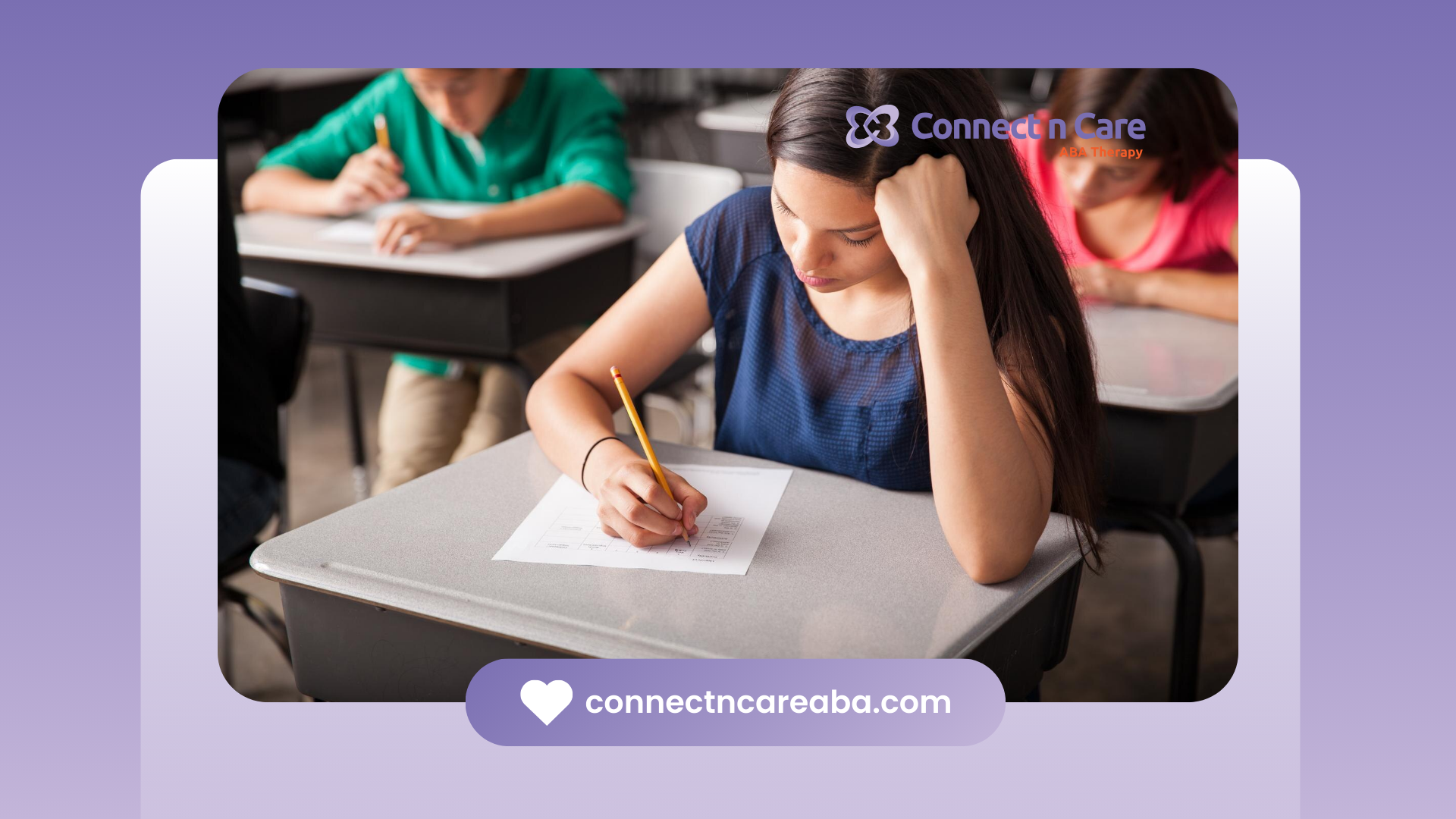Understanding Autism in Kids
Autism Spectrum Disorder (ASD) brings a mix of developmental challenges that can impact how kids communicate, behave, and interact socially. Getting a grip on these traits is key to offering the right support and resources, including toys that can help with their growth and learning.
What Autism Looks Like
Kids with autism might show a range of traits, such as:
- Trouble with talking and understanding non-verbal cues
- Repeating the same actions or fixating on specific interests
- Struggling with social interactions
- Being sensitive to sensory inputs or seeking out sensory experiences
- Preferring routines and predictability
Remember, autism is a spectrum. These traits can show up in any mix and with different levels of intensity. Every child with autism is unique, with their own set of strengths and challenges.
Why Toys Matter for Autistic Kids
Toys aren't just for fun—they're crucial for helping kids with autism develop. They can:
- Boost sensory processing and integration
- Improve communication and language skills
- Encourage social interaction and understanding of social cues
- Build fine and gross motor skills
- Offer a fun way to learn
Choosing the right toys for autistic toddlers can make a big difference in their development. Toys that meet their sensory needs, like sensory toys for autistic children, can be especially helpful. Plus, educational toys for children with autism can support cognitive growth and make learning through play enjoyable.
Making play a part of the daily routine for kids with autism not only helps with their development but also brings joy and exploration into their lives. It's important for parents, teachers, and therapists to see the value of play and pick toys that match the child's interests and developmental stage.
Sensory-Friendly Toys
Picking the right toys for autistic toddlers isn't just about fun—it's about supporting their growth and comfort. Sensory-friendly toys are crafted to engage the senses, helping kids with autism process information and stay calm.
Why Sensory Toys Matter
Sensory toys are game-changers for kids with autism. According to Smith (2019), these toys can make a big difference by boosting sensory processing and offering a way to stay calm. Johnson et al. (2020) also point out that sensory toys help with sensory regulation, which can prevent meltdowns and improve overall well-being.
Here’s how sensory toys can help:
- Better Focus: Sensory toys can help kids pay attention and concentrate better.
- Improved Social Skills: Playing with sensory toys can boost social interaction, as noted by Garcia et al. (2019).
- Less Stress and Anxiety: These toys have a calming effect, reducing stress and anxiety in autistic toddlers.
- Motor Skills Development: Sensory toys encourage movement and manipulation, helping develop fine and gross motor skills.
Best Sensory Toys for Autistic Toddlers
When picking sensory toys, think about what your child likes and needs. Here are some top picks that many autistic toddlers love:
- Textured Sensory Balls: These balls come in different textures and sizes, perfect for touch and improving fine motor skills.
- Sensory Bins: Filled with things like rice, beans, or water beads, these bins offer hands-on fun and exploration.
- Fidget Toys: Great for focus and self-regulation,
fidget toys for autism are a hit with many autistic toddlers.
- Weighted Stuffed Animals: These plush toys provide a sense of security and deep pressure, soothing kids who get overwhelmed.
- Musical Instruments: Simple instruments like drums or xylophones give auditory feedback and are often used in therapy.
| Toy Type | Description | Sensory Input |
|---|---|---|
| Textured Sensory Balls | Balls with different surfaces | Tactile |
| Sensory Bins | Containers with various fillers | Tactile, Visual |
| Fidget Toys | Small, handheld items | Tactile, Proprioceptive |
| Weighted Stuffed Animals | Plush toys with added weight | Proprioceptive, Tactile |
| Musical Instruments | Instruments that produce sound | Auditory, Tactile |
For more sensory-friendly options, check out our list of sensory toys for autistic children. If you're looking for toys that also educate, explore our picks for educational toys for children with autism. These resources will help you find the best toys for autistic toddlers, making playtime fun and beneficial for their development.
Educational Toys
Why Educational Toys Matter
Educational toys are a game-changer for kids with autism. They offer unique ways to learn and grow, tailored to their needs. These toys help with cognitive skills, language, and understanding concepts. The American Academy of Pediatrics says they're key in autism intervention, helping kids pick up essential skills in a fun, interactive way.
Top Educational Toys for Kids with Autism
Picking the right toys can make a big difference. Here are some top picks that cater to various learning needs:
- Puzzle Games: Great for boosting problem-solving skills and hand-eye coordination. Plus, the visual results can be super satisfying for kids with autism.
- Building Blocks: Think
LEGO or
Mega Bloks. They spark creativity and help kids understand space and structure.
- Shape Sorters:
Perfect for teaching shapes and improving fine motor skills.
- Matching Games: These games help with memory and recognition by matching pictures or colors.
For more options, check out National Autism Resources. They have a wide range of toys designed for kids with autism. Another great resource is Educational Insights, which offers toys specifically for kids with special needs. These sites ensure every child can find something that fits their interests and developmental stage.
Want more tips on picking the best toys for autism? Talk to ABA therapists and other professionals who know autism education. They can give personalized advice based on your child's unique needs and abilities.
Adding educational toys to daily routines can make learning more fun and accessible for autistic toddlers, setting the stage for well-rounded development.
Interactive Toys
Interactive toys can be a game-changer for kids with autism, especially when it comes to building those all-important social skills.
Why Interactive Toys Rock
These toys aren't just for fun—they're designed to get kids talking, sharing, and playing together. Here's how they help:
- Boosting Social Interaction:
Interactive toys can get kids to join in play with others, making socializing a bit easier. Research shows these toys can really help kids with autism develop social skills.
- Improving Communication: With a shared focus, these toys help kids express themselves and chat with their friends.
- Teaching Turn-Taking and Teamwork: Many interactive toys need more than one player, teaching kids the value of taking turns and working together.
Top Interactive Toys for Social Skills
Here are some interactive toys that really help autistic toddlers connect with others:
- Talking Dolls and Action Figures:
These toys can "talk," helping kids practice conversations and understand the back-and-forth of talking and listening.
- Simple Board Games: Easy-to-understand games provide a structured way for kids to interact, making socializing less intimidating.
- Team Puzzle Games: Puzzles that need more than one person to solve encourage cooperation and give a sense of accomplishment.
- Electronic Games for Multiple Players: Some electronic games are designed to develop social skills by having players work together to reach a goal.
Parents, caregivers, and teachers should pick toys that not only entertain but also help kids with autism grow. To find more toys that fit the bill, check out our best toys for autism. For kids who need sensory stimulation, our list of sensory toys for autistic children is a great resource. And for those looking to boost fine motor skills and cognitive development, our educational toys for children with autism recommendations are spot on.
Communication-Boosting Toys
For toddlers on the autism spectrum, talking and understanding others can be tough. But guess what? There are toys out there that can make a big difference. These toys are designed to help kids learn to talk and communicate better. Let's check out some of these awesome toys and tools.
Toys for Language Development
Toys that help kids learn to talk are super important, especially for kids with autism. They make learning fun and help kids practice talking without even realizing it. Here are some top picks:
- Picture Exchange Communication Systems (PECS):
These use picture cards to help kids say what they need or want. Over time, this can help them start talking more.
- Interactive Books: Books with sounds, simple words, and things to touch can get kids excited about language.
- Puppet Playsets: Puppets are great for acting out stories and having conversations. They help kids practice talking and using their imagination.
According to the Journal of Autism and Developmental Disorders, toys that get kids interacting can really boost their communication skills. Playing with these toys can lead to big improvements in how kids talk and understand others.
Tools for Improving Communication Skills
Besides toys, there are some special tools that can help kids with autism communicate better:
- Speech-Generating Devices (SGDs):
These gadgets speak for the child when they pick symbols or type words.
- Social Story Cards: These cards show everyday situations and how to respond, helping kids learn social language.
- Sign Language Materials: Teaching sign language can be a great way to help kids communicate, even before they start talking.
The American Speech-Language-Hearing Association says it's important to use tools that fit each child's needs. The right toys and tools can really help kids express themselves and connect with others.
Want more ideas? Check out our articles on fidget toys for autism and sensory toys for autistic children. We also have guides on best toys for autism and educational toys for children with autism to help you find the perfect toys for your child.
Fine Motor Skills Toys
Why Fine Motor Skills Matter
Fine motor skills are the unsung heroes of childhood development. These skills are the foundation for everyday tasks like writing, buttoning up a shirt, and feeding oneself. For kids with autism, mastering these skills can be a bit more challenging, making it super important to practice and play to build them up.
Improving fine motor skills isn't just about getting better at physical tasks. It's also about boosting a child's confidence and independence. The American Occupational Therapy Association points out that being good at motor skills can make a big difference in a child's overall happiness and success, both in school and in social settings.
Best Toys for Fine Motor Skills in Autistic Toddlers
Picking the right toys to help autistic toddlers develop fine motor skills is key. These toys should help with hand-eye coordination, finger dexterity, and grip strength. Plus, they should be fun and educational to keep kids engaged.
| Toy Type | Skill Targeted | Recommended Age |
|---|---|---|
| Bead Stringing Sets | Hand-Eye Coordination | 3+ years |
| Pegboards | Finger Dexterity | 2+ years |
| Play Dough | Grip Strength | 2+ years |
| Puzzle Games | Problem Solving & Precision | 3+ years |
| Building Blocks | Spatial Awareness & Control | 3+ years |
Adding these toys to a child's daily routine can turn learning into a fun adventure. Sensory toys are also great because they combine fine motor skill practice with tactile exploration. Check out our list of the best toys for autism for more ideas that fit different developmental needs.
Remember, toys are just one piece of the puzzle. They should be part of a bigger plan that includes occupational therapy and other personalized interventions. Always talk to professionals to make sure the toys you choose are right for your child's specific needs. Fidget toys can also be a big help for improving focus and calming, while also working on fine motor skills.
In short, toys that help develop fine motor skills are a big deal for autistic toddlers. With the right toys and regular play, kids with autism can make great progress in their motor skills, gaining more independence and confidence in their daily lives.









